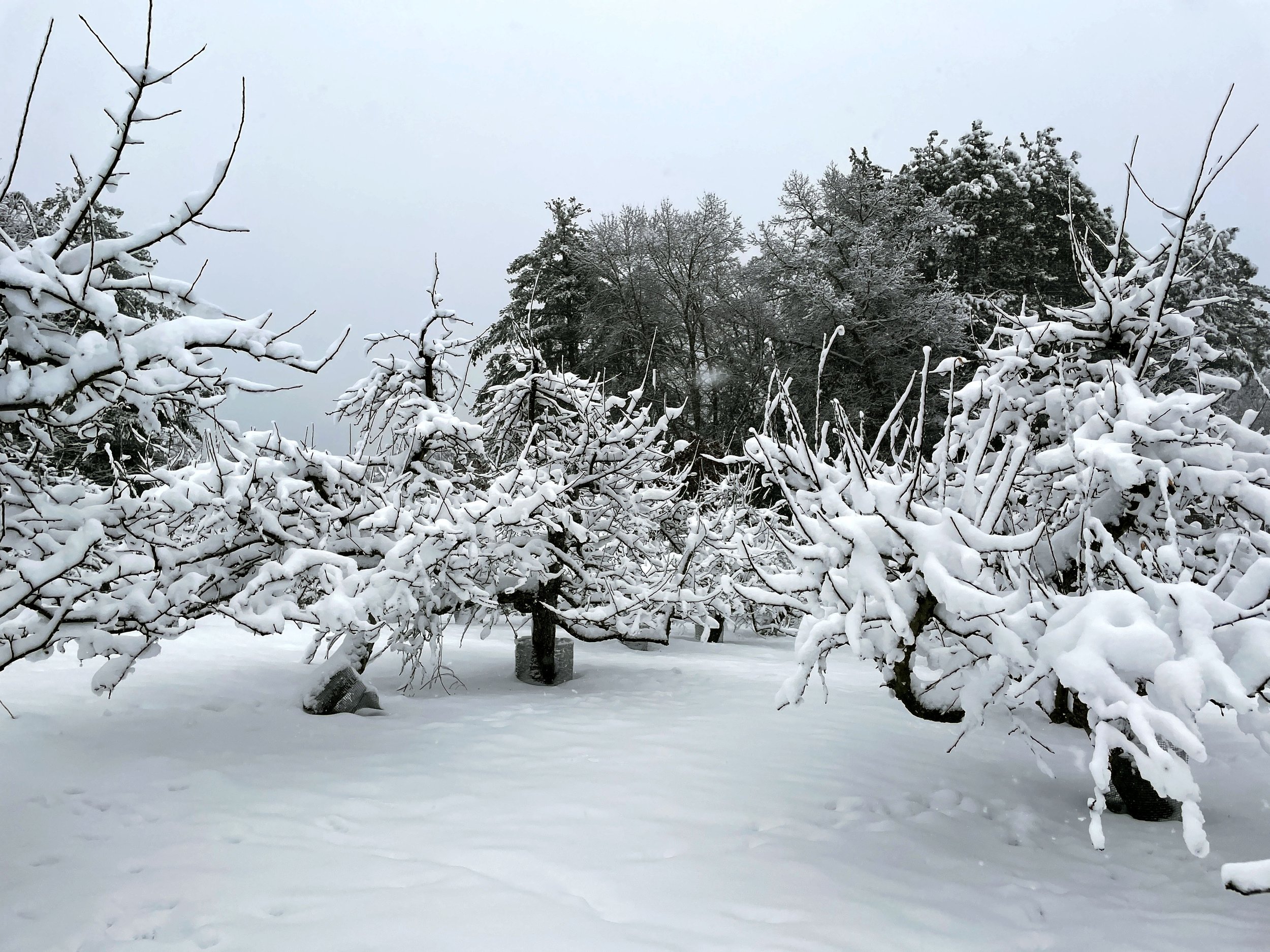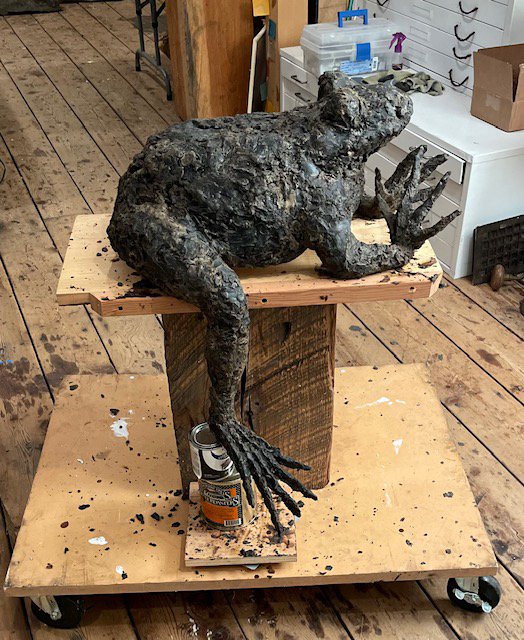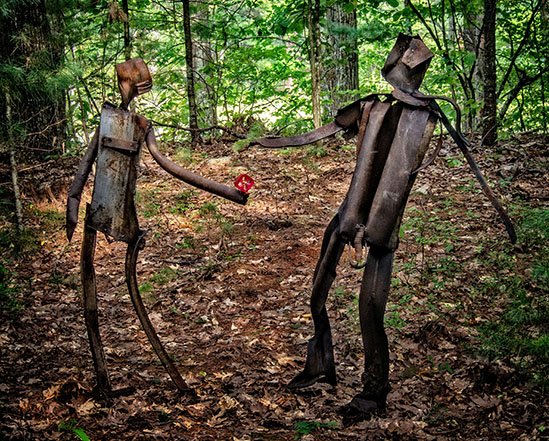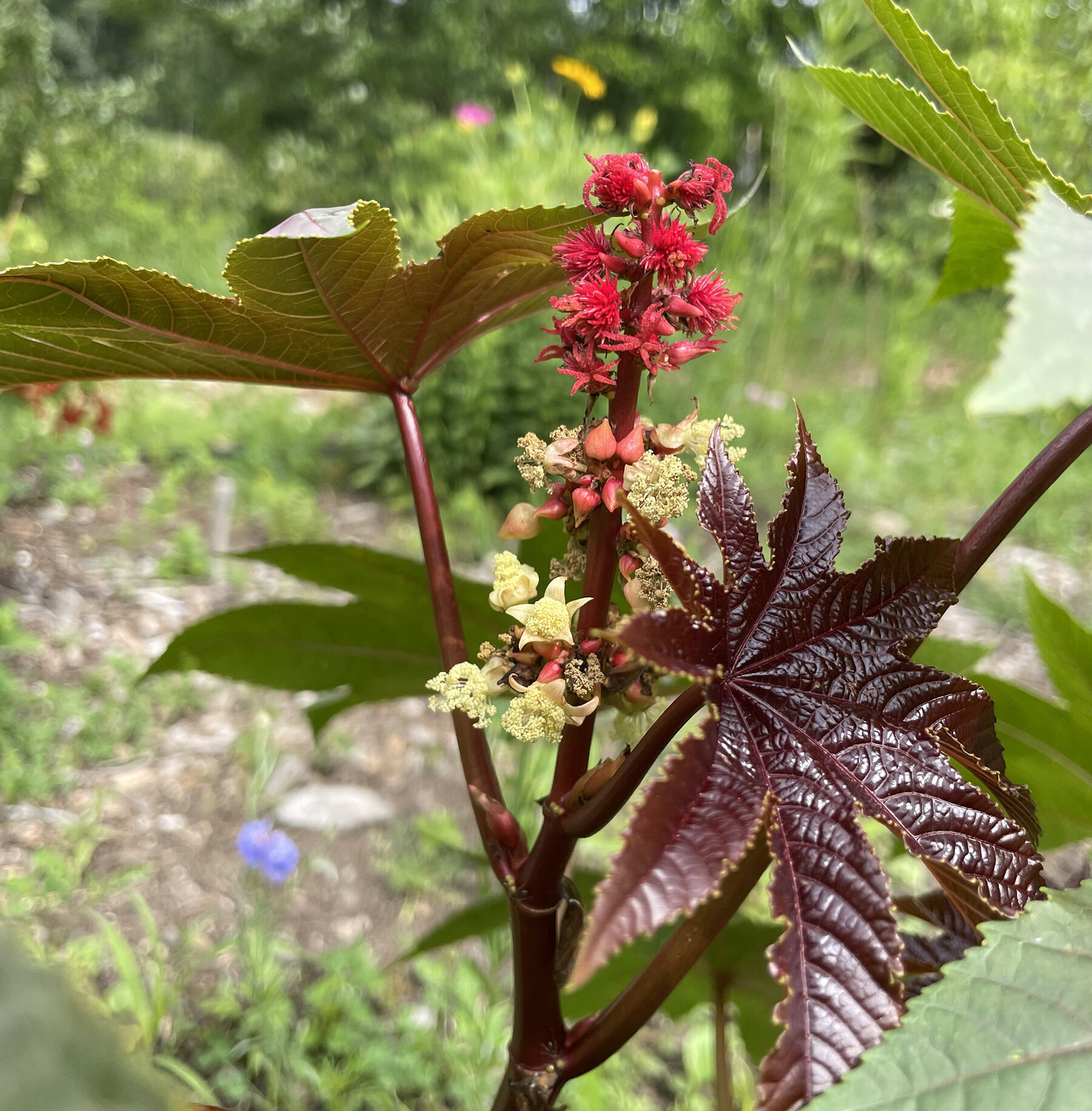Welcome to the Apples, Art, and Spirit Blog!
In 2001 I moved to a small farm in Harvard, Massachusetts with a rundown apple orchard. Something about apples and I could feel a small delight rise inside me. Pears, cherries, peaches are all delicious; but apples figure in mythology, history, and science, even religion.
“Could I grow apples?” I wondered. It took a few years for our first crop, but today thousands of people come each fall to Old Frog Pond Farm to pick certified organic apples, raspberries, and to enjoy our annual outdoor sculpture exhibit.
Yet every year is different. Weather, insects, the age of the trees and, more importantly, how I relate to them changes. I invite you to join me in the orchard for the next year. You don’t need loppers and work gloves, only an interest in how things grow and how they change. Apples, yes, but also people. I’ve found that we are similar to apples in many ways, and there is much to be learned from cultivating them.
Sign up to receive the blog in your inbox. I look forward to sharing this journey with you.












